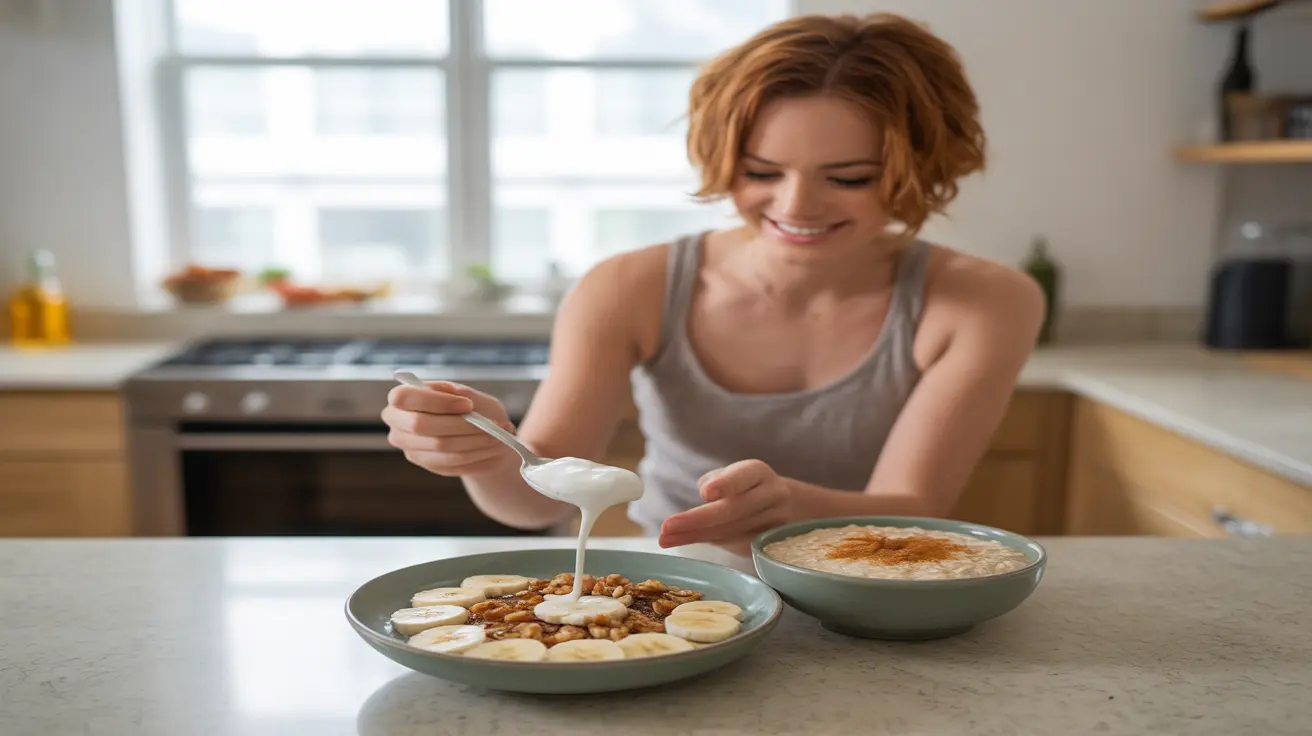Starting your day with a banana can be a smart nutritional choice, but understanding how to maximize its benefits and pair it effectively is key to making the most of this versatile fruit. Whether you're looking to manage blood sugar, boost energy levels, or improve digestive health, the way you incorporate bananas into your breakfast routine matters.
In this comprehensive guide, we'll explore the science-backed benefits of eating bananas for breakfast, examine how ripeness affects their nutritional profile, and discover the best food combinations to create a satisfying morning meal.
Nutritional Profile of Bananas
Bananas are packed with essential nutrients that make them an excellent breakfast choice. A medium-sized banana contains approximately 105 calories and provides:
- 27 grams of carbohydrates
- 3 grams of fiber
- 1.3 grams of protein
- 14 grams of natural sugars
- 422 mg of potassium
- 31 mg of magnesium
- 25% of vitamin B6 daily value
The Impact of Banana Ripeness
The ripeness of your breakfast banana significantly affects its nutritional benefits and how your body processes its sugars. Green or slightly underripe bananas contain more resistant starch, which:
- Acts as a prebiotic
- Provides slower-releasing energy
- Has a lower glycemic impact
- Supports gut health
Fully ripe bananas with brown spots have more readily available sugars and antioxidants but may cause faster blood sugar changes.
Strategic Banana Breakfast Combinations
To create a balanced breakfast that prevents sugar crashes and keeps you satisfied longer, pair your banana with:
Protein Sources
- Greek yogurt
- Nut butter
- Eggs
- Protein smoothies
Healthy Fats
- Almonds or walnuts
- Chia seeds
- Avocado
- Coconut
Complex Carbohydrates
- Oatmeal
- Whole grain toast
- Quinoa
- Buckwheat
Digestive Health Benefits
Bananas offer significant advantages for morning digestion and gut health. They contain both soluble and insoluble fiber, supporting regular bowel movements and feeding beneficial gut bacteria. Compared to other common breakfast fruits, bananas provide:
- More prebiotic fiber than apples
- Better digestive enzyme support than oranges
- Natural compounds that protect stomach lining
- Electrolytes that aid hydration
Frequently Asked Questions
Is eating a banana for breakfast good for people with diabetes or blood sugar concerns?
People with diabetes can safely eat bananas for breakfast, but should pair them with protein and healthy fats to slow sugar absorption. Choosing slightly underripe bananas and limiting portion size to one medium banana can help manage blood sugar impact.
What are the best foods to eat with a banana for breakfast to avoid sugar crashes and stay full longer?
Combine bananas with protein-rich foods like Greek yogurt, nuts, or eggs, and include healthy fats such as nut butter or seeds. This combination helps slow digestion and provides sustained energy throughout the morning.
How does the ripeness of a banana affect its health benefits when eaten at breakfast?
Less ripe bananas contain more resistant starch and have a lower glycemic impact, making them better for blood sugar control. Fully ripe bananas have more antioxidants but also more readily available sugars that may digest more quickly.
What are the main vitamins and minerals in bananas, and how do they help my health in the morning?
Bananas are rich in vitamin B6 (energy metabolism), potassium (muscle function and blood pressure), magnesium (nerve function), and vitamin C (immune support). These nutrients help jumpstart your metabolism and provide sustained morning energy.
Can eating bananas for breakfast help with digestion or gut health, and how does the fiber content compare to other fruits?
Bananas provide about 3 grams of fiber per serving, including both soluble and insoluble types. While apples and pears contain slightly more fiber, bananas offer unique prebiotics and digestive enzymes that specifically support gut health and morning digestion.




